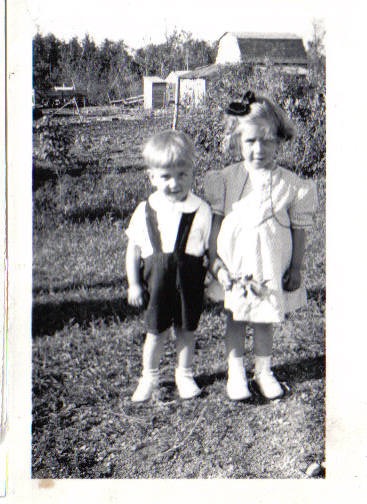COLUMN: Tales from the Gravel Ridge – What’s not to like about August?
Advertisement
“August is laughing across the sky,” wrote E. Pauline Johnson. Indeed, what’s not to like about August. That phrase beautifully describes a day my husband and I spent at the Morden Corn and Apple Festival some years ago. It was a new experience for us, as we had never participated in this annual event before, and it’s one we’re not likely to forget soon.
The old steam engine which ran constantly, supplied the necessary scalding water for cooking the food of the day. We had never seen so much corn with such consistently perfect kernels. As for its taste, it was superb.
Having grown up in Rosengard during a time when the Peter Loewen farm still boasted a large Titan model, I was reminded of those days now more than half a century later. As we sat in the shade of the trees, enjoying the bounty of Morden’s harvest, the familiar sound of the steam engine, including its whistle, provided a comfortable backdrop. The wood-smoke wafting our way as the steam engine was stoked, added to the nostalgia which the day tended to generate.

The Town of Morden to me is an interesting mix of old and new. Some of the older buildings, such as the Land Titles Office, speak of long standing institutions. So too, the Morden Provincial Court, a truly grand building. Some years ago I had occasion to appear in court in this splendid building. The interior is a reflection of the exterior in that it also is reminiscent of another era, while at the same time fulfilling its intended legal function for today.
After we had eaten all the corn we wanted, and enjoyed the relaxed atmosphere of the town, we headed back to Winnipeg. As it turned out, we weren’t through with nostalgia yet.
We were inclined to stop for a cup of tea, and perhaps some dessert. Not just any place would do, however. Those many years ago, our route home took us past the Town of St. Jean Baptiste, and a sign along the highway invited us to visit the old convent. We needed no further invitation.
The convent served the community for a very long period of time, its first brick being laid in 1897. Educational and community needs having changed over the years, the convent was sold to the community in 1992, which in turn sold it to Gunter and Patrice Dorn in 1995. At the time when we were visiting the teahouse, four generations of the Dorn family resided in this historic building. It was more than a mere residence, however. The second floor housed a large collection of Gunther’s antiques, and what used to be the chapel, had become Place Antoinette, a unique tea room.
The ambience of Place Antoinette, where we went for tea that day, was truly refreshing for travelers who had spent the day in the sun, eating corn on the cob and drinking apple juice. Pleasant music was softly playing in the background, and the tea and dessert were delightful.
It was the furniture of Place Antoinette that particularly caught my eye. In keeping with the focus of the then current owners, the tables and chairs, along with a very large buffet, were all antiques. It was here that my mind drifted back to the years of my childhood.
Sometime during those years in Rosengard we acquired an oak dining room suite. While not new, it was nevertheless adequate for our purposes. The buffet that came with it, complete with a beveled mirror, was an excellent piece of furniture. The table too had much to recommend it. It was round, conveying a sense of continuity and completeness. It was, however, also equipped with a number of leaves for insertion in the middle, making it possible for an expanded table, while at the same time retaining something of its original shape. If I had it today, I think I would cherish it, possibly for its antique character, but even more so for the many memories of family settings it contained. Long before these things were important to me, the table and chairs were sold, to be replaced by something much more modern.
That day in August took me back to Rosengard in many way. Corn on the cob at Morden was a vivid reminder of my agrarian roots, complimented by the relaxed atmosphere of a prairie town. Place Antoinette, in a small French Canadian town, far removed from the Mennonite community at Rosengard, served to remind me of the meals which were such an essential element of my rural childhood experience.
